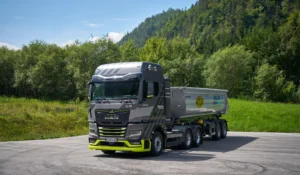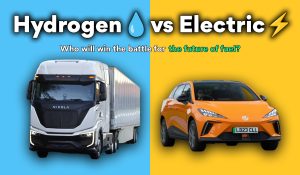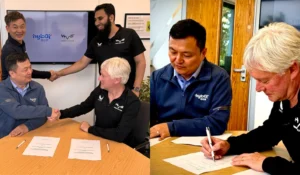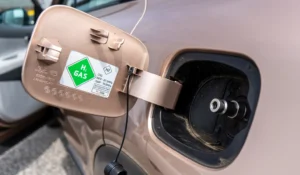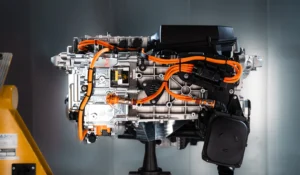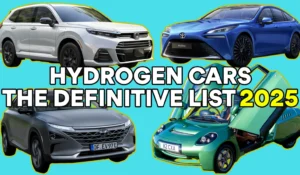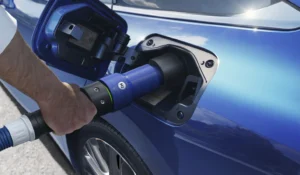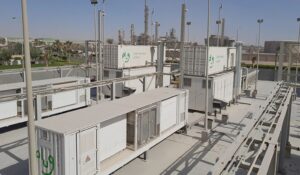HGV manufacturer admits green hydrogen offers a ‘compelling solution’
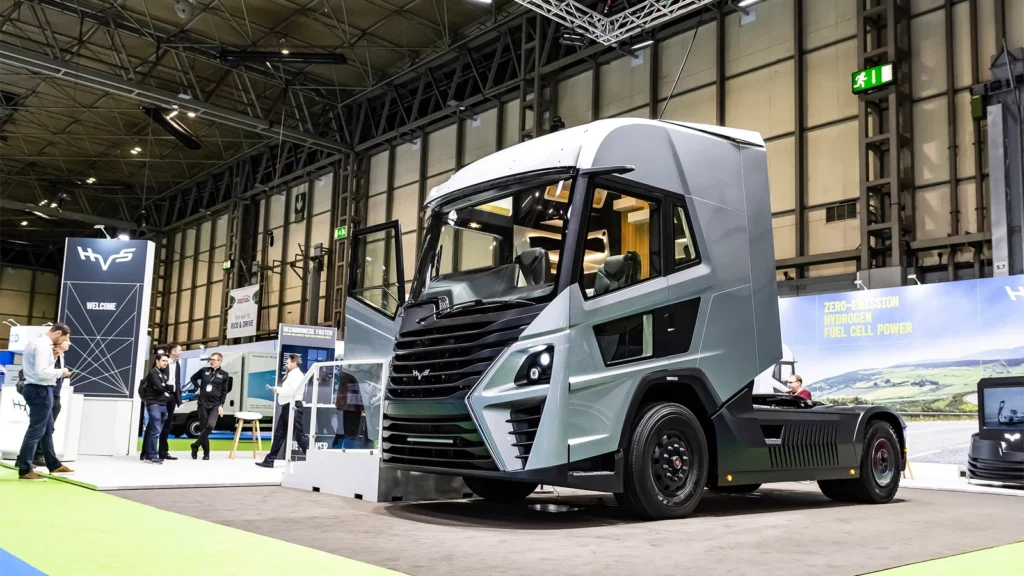
Hydrogen ‘could soon be challenging diesel’ for the lead in the provision of fuel for the HGV market, according to Dr David Telford.
Telford is Chief Commercial Officer at Glasgow-based HGV manufacturer Hydrogen Vehicle Systems (HVS), and gave his thoughts on green hydrogen as a sustainable fuel solution to replace fossil fuels in heavy goods vehicles in Venson’s white paper ‘The Big Hydrogen Question’.
The white paper claims that ‘a new optimism abounds that hydrogen-powered transport is finally about to fulfil its vast potential’.
Bosch are expected to invest €2.5bn in hydrogen technologies by 2026, with Dr Stefan Hartung, Chairman of the Board of Management at Bosch, saying: “Here in Stuttgart-Feuerbach, in the plant whose history goes back further than any other Bosch plant, the hydrogen future is about to happen.”
Telford is also of the belief that the tide is turning towards hydrogen, saying: “At HVS, we have focused on green hydrogen as a sustainable fuel solution to replace fossil fuels in heavy goods vehicles, with zero tailpipe emissions.
“For many HGV long haul applications, we believe that the efficiency of the FCEV powertrain with regenerative braking and using e-hydrogen [green hydrogen] directly offers the most compelling solution.
“A hydrogen HGV currently costs more than a standard diesel HGV, so the more fuel used the sooner TCO parity is achieved.
“This is why larger vehicles that travel further are a suitable choice. We anticipate hydrogen prices and component prices will decrease rapidly to 2030 as economies of scale come into play and diesel prices continue to flux. TCO parity by 2029 is possible.
“For HGV’s that are used in high load, high daily mileage application, we believe that gaseous hydrogen at 350- 700 bar pressure delivers the best compromise.
“It offers lower costs than hydrogen derivatives or synthetic fuels, provides sufficient energy density for the range involved, and the high power needed for high loads.
“It is both low carbon and sustainable on a source-to-wheel basis, and it offers zero emissions at point of use – low carbon in terms of global greenhouse gas emissions and clean in terms of local air pollution.
“Hydrogen fuel cell technology enables long range, high payload and quick refuelling, without putting strain upon the local electricity grid – all attributes required for viable heavy duty transport fleets.
“When a user needs one or all of long range, quick refuelling and full load carrying capacity, hydrogen is ideal.”
Telford was keen to stress that electric and hydrogen needs to be seen as friends, not foes, in the fight to wean the automobile industry off fossil fuels.
He added: “It is important to remember that it is not a battle, hydrogen vs battery, but about what technology is best suited to decarbonise the required application.
“As hydrogen refuelling infrastructure becomes more widely available, hydrogen vehicles of all sizes will become more attractive due to the quick refuelling times.
“The current lack of third party supplied infrastructure is the biggest challenge.
“However, a wider hydrogen ecosystem is not an essential part of the transition as most long-hauls are point-to-point between distribution centres, or in back-to-base operations.
“In both cases, fleets of 10 vehicles or less can be serviced with mobile hydrogen refuelers. For HGVs operating out of a hub, it becomes commercially attractive to build a hydrogen refilling station.
“We estimate we can cover 90% of UK HGV use on the motorway network with 7-10 hydrogen refuelling stations.”
Follow Driving Hydrogen on LinkedIn for all the latest news and views.

